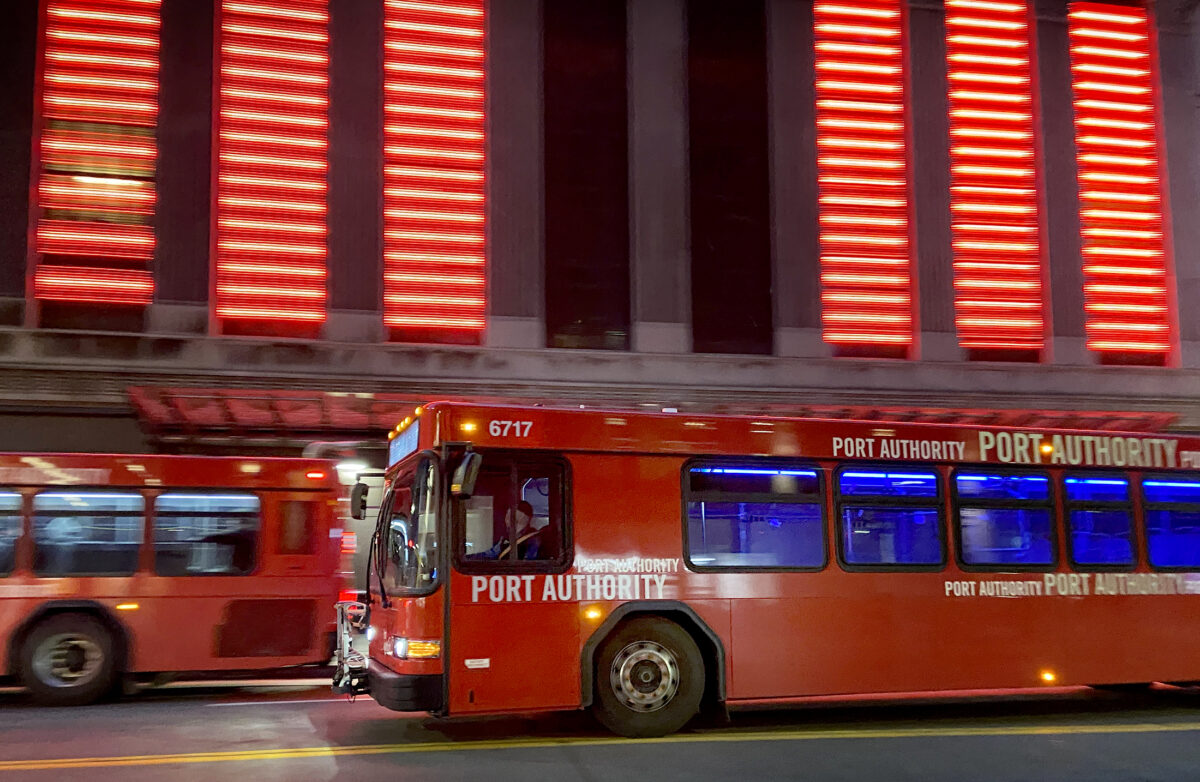Pittsburgh Regional Transit’s roughly 50-member police department is responsible for maintaining order on nearly 100 transit routes and at thousands of bus and light rail stops, protecting dozens of facilities and investigating traffic accidents and other incidents.
But in recent years, the agency has been facing the same problems as municipalities and other jurisdictions in attracting and keeping officers. It has lost 25 officers in the past five years and currently has six vacancies in its rank-and-file staff funded at 44 officers.
To address those problems, the agency has reached agreement on a one-year union contract that calls for across-the-board raises of 18%, beginning Aug. 1. The board’s performance oversight committee recommended approval of the deal last week, and the full board will vote on Friday.
Mike Cetra, the agency’s chief legal officer, told the committee Thursday that the substantial raise is needed “to get our police officers to a level where we can attract and keep them.” The proposed contract also includes a bonus of $1 an hour for each hour worked during the height of the COVID-19 pandemic, with a maximum of $4,000 per officer, the same bonus bus drivers and other union members received in their contract last year.
The deal would raise the pay to $57,484 for first-year officers and $82,892 for master detectives with 10 years of experience. Officers also will receive two more paid sick days.
Cetra said the agency wanted a one-year deal to align the contract’s expiration with the deal for the agency’s nine-member command staff.
“Our wages are not competitive,” CEO Katharine Eagan Kelleman said in an interview after the committee vote. “This will get us closer to what [the city of Pittsburgh] pays.”
Neither attorney Mike Healey, who represents the union, nor Officer Dave Walters, who helped negotiate the contract, could be reached for comment.
Cetra and Kelleman said the agency’s wide responsibilities result in transit officers getting extra training in a variety of areas. That leads to skilled officers but also makes them attractive for other jurisdictions “to poach our officers” with higher pay scales, Cetra said.
“Once they’ve got that training, it’s hard for us to keep these people,” Kelleman said. “Can we be a little more competitive with our salaries and keep them?”
PRT officers were among the first on the scene last winter when the Fern Hollow Bridge collapsed in Pittsburgh’s Frick Park. They helped to rescue passengers on a bus that went down with the bridge and others by being part of a human chain to pull victims up the steep slope.
The agency also is looking into whether it can reimburse new officers for the cost of attending the Allegheny County Police Academy. The academy provides more than 900 hours of basic training, which the state requires for all officers, at a cost of about $5,000.
Ed covers transportation at the Pittsburgh Post-Gazette, but he's currently on strike. Email him at eblazina@unionprogress.com.



